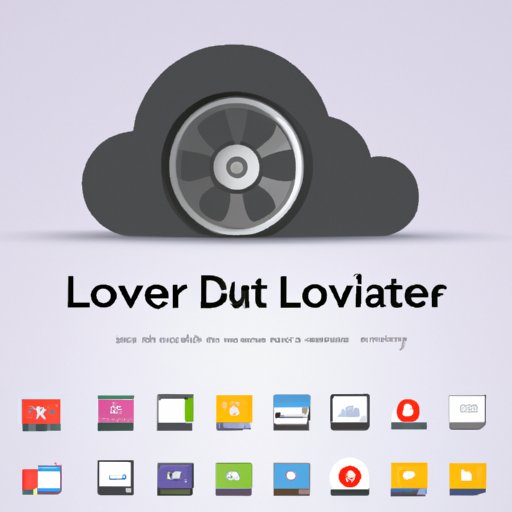Introduction
With the rise of streaming services like Netflix and Amazon Prime, it’s now easier than ever to access thousands of movies at your fingertips. But what if you want to download movies to watch later? Whether you’re on a long flight or just don’t have reliable internet access, downloading movies can be a great way to make sure you don’t miss out on your favorite films. In this article, we’ll discuss the different ways you can download movies for later viewing.
Create a Digital Library: How to Download and Store Movies for Later Viewing
One of the best options for downloading movies is to create a digital library. This involves downloading movies directly from websites or apps, then storing them on your device. There are several benefits to doing this, including the convenience of having all your movies in one place and the ability to access them whenever you want. Here’s how to get started:
First, decide which movies you want to download. You can search online for free movie downloads, or you can purchase movies from sites like iTunes or Google Play. Once you’ve found the movies you want, download them to your device. If you’re downloading onto a computer, you can store the files in a designated folder. If you’re downloading onto a phone or tablet, you can store the files in an app like VLC or Video Player.
Once the movies are downloaded, you can watch them anytime, anywhere. Just open the file or app and enjoy. It’s that easy!

Utilizing Torrents: The Basics of Downloading Movies for Offline Viewing
Another option for downloading movies is to use torrents. Torrents are peer-to-peer networks that allow users to share large files with each other. They’re a great way to access movies that might not be available through official channels. However, there are some risks associated with torrents, so it’s important to proceed with caution. Here are some tips for downloading movies safely and securely:
Make sure you’re using a secure torrent client, such as uTorrent or BitTorrent. Be aware of copyright laws in your country or region, as downloading copyrighted materials may be illegal. Use a VPN to keep your IP address hidden and protect your privacy. And finally, always scan files before you download them to ensure they’re free from viruses or malware.
Exploring Streaming Services: How to Download and Save Movies to Watch Later
Many streaming services offer the ability to download movies for offline viewing. Popular services like Netflix, Hulu, and Amazon Prime all offer this feature. To download movies from these services, first log into your account and navigate to the movie you want to download. Select the “Download” option and wait for the download to complete. Once the movie is downloaded, you can watch it anytime, even without an internet connection.

Taking Advantage of Cloud Storage: How to Download Movies and Store Them Online
Cloud storage is another great option for downloading movies. With cloud storage, you can store your movies in a secure online space and access them from any device. To get started, you’ll need to sign up for a cloud storage service, such as Dropbox or Google Drive. Once you’ve signed up, you can start downloading movies and saving them to your cloud storage account. When you want to watch the movie, simply log into your account and stream it from the cloud.

Investing in an External Hard Drive: How to Download and Store Movies for Later Viewing
Finally, you can invest in an external hard drive to store your movies. An external hard drive is a great option if you want to store a large number of movies without taking up too much space. To get started, purchase an external hard drive and connect it to your computer. Then, download your movies and save them to the hard drive. When you want to watch a movie, simply plug the hard drive into your device and stream the movie directly from the hard drive.
Conclusion
In conclusion, downloading movies to watch later is a great way to make sure you never miss out on your favorite films. There are several options for downloading movies, including creating a digital library, utilizing torrents, exploring streaming services, taking advantage of cloud storage, and investing in an external hard drive. No matter which method you choose, you’ll be able to access your movies anytime, anywhere.
(Note: Is this article not meeting your expectations? Do you have knowledge or insights to share? Unlock new opportunities and expand your reach by joining our authors team. Click Registration to join us and share your expertise with our readers.)
